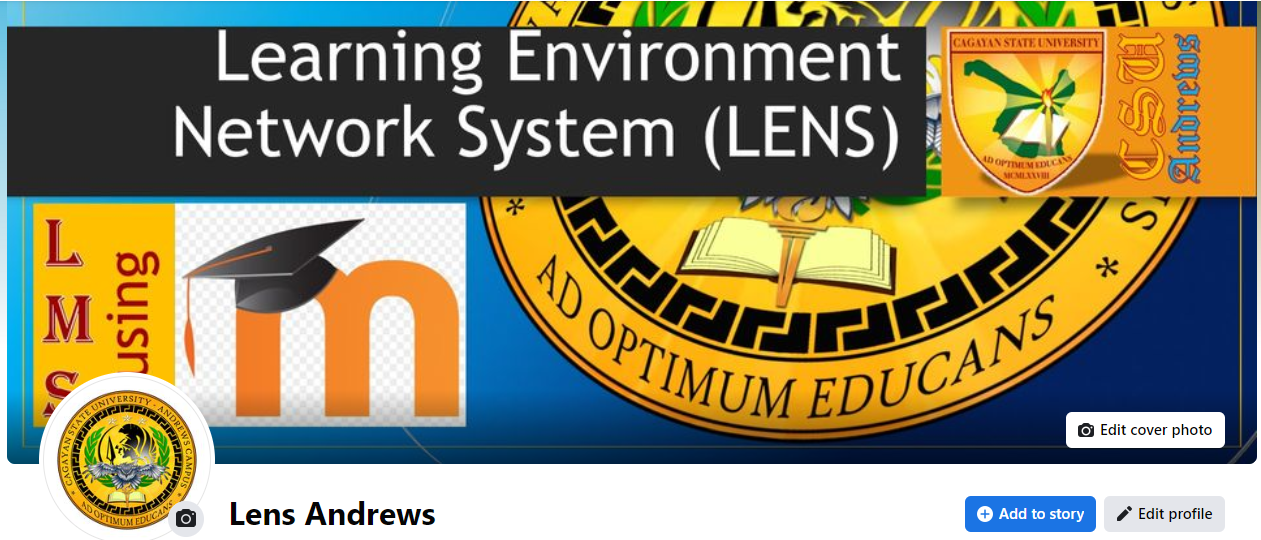Welcome to CSU-Andrews Learning Environment Network System!

For LENS Tutorials:
1)
2)
OTHER LINKS FOR E-LEARNING RESOURCES:
E-Library: Cagayan State University Library Resources Portal
Thank you & God bless.
-Campus MIS Coordinator

For LENS Tutorials:
1)
2)
OTHER LINKS FOR E-LEARNING RESOURCES:
E-Library: Cagayan State University Library Resources Portal
Thank you & God bless.
-Campus MIS Coordinator
CSU is a University with global stature in the arts, culture, agriculture and fisheries, the sciences as well as technological and professional fields.
Cagayan State University shall produce globally competent graduates through excellent instruction, innovative and creative research, responsive public service and productive industry and community engagement.
The University serves the INDIVIDUAL by providing the student with a nurturing environment for optimal human flourishing. It serves the Community by offering programs responsive to individual and social needs.
PRESIDENTIAL DECREE No. 1436, s. 1978
"WHEREAS, the establishment of a state university in the Province of Cagayan will provide better service in professional and technical training in the arts, sciences, humanities and technology and in the conduct of scientific research and technological studies"
The Orientation Module is placed in your respective College category and the enrollment key was given to your respective deans.